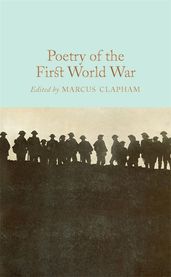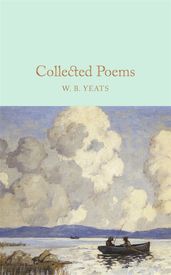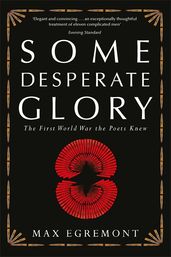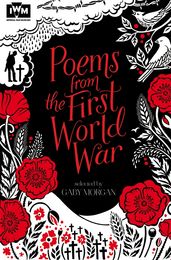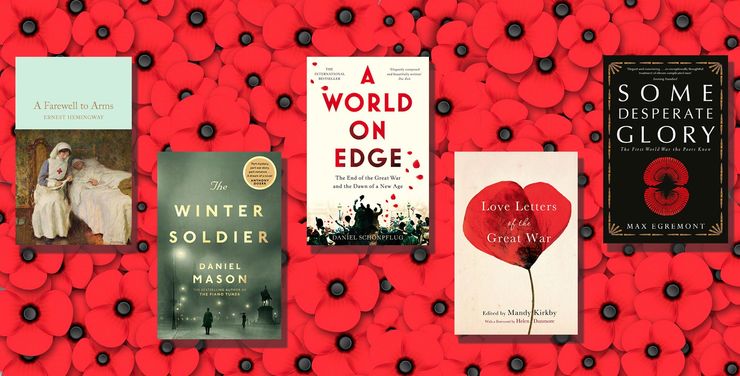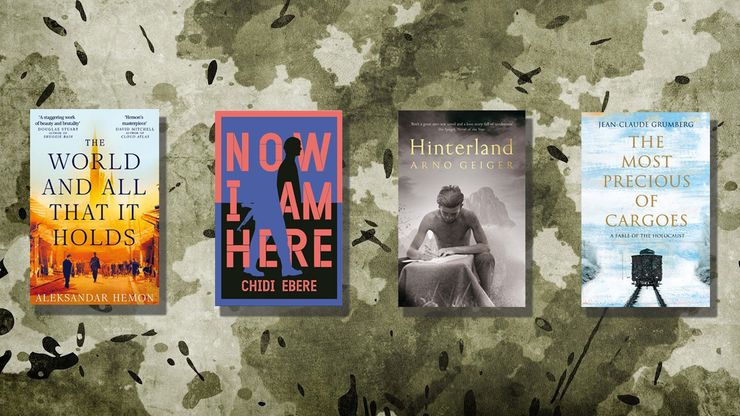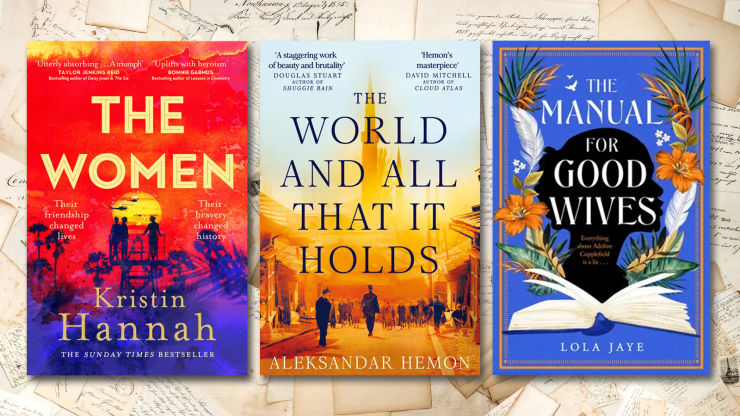The poetry of the First World War
A collection of poems inspired by World War One, including poems by Siegfried Sassoon, Rupert Brooke and Wilfred Owen.
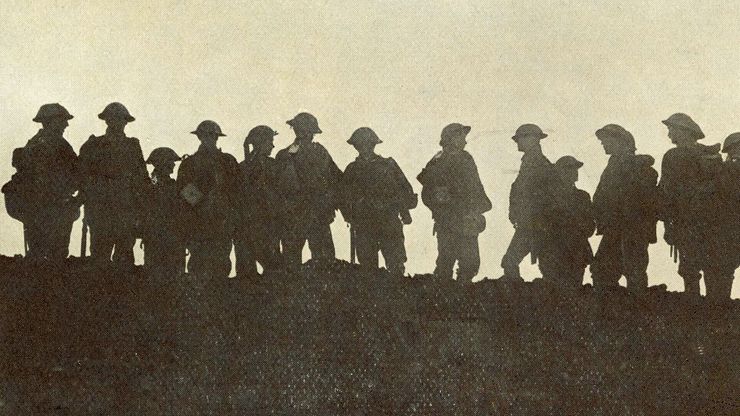
The First World War inspired profound poetry, words in which the atmosphere and landscape of battle were evoked perhaps more vividly than ever before. The First World War poets – many of whom lost their lives – became a collective voice, illuminating not only the war’s tragedies and their irreparable effects but also the hopes and disappointments of an entire generation.
Although it has been more than one hundred years since the Armistice and the end of the First World War, it continues to move and inspire poets, such as Carol Ann Duffy's sonnet, ‘The Wound in Time’ – part of a series of special Remembrance Day events organised by film director Danny Boyle in 2018.
Alongside ‘The Wound in Time’, here we’ve curated a collection of just some of the most poignant World War One poems, including both the writing of famous soldier poets and that of nurses, mothers, sweethearts, family and friends who experienced the war from entirely different perspectives.
‘It’s necessary to separate politics, even history, from the poetry. The work of the British First World War poets can be seen as one of the most powerful collective statements not just against what happened on the western front but against all war.’
— Max Egremont, Some Desperate Glory
The Wound in Time
It is the wound in Time. The century’s tides,
chanting their bitter psalms, cannot heal it.
Not the war to end all wars; death’s birthing place;
the earth nursing its ticking metal eggs, hatching
new carnage. But how could you know, brave
as belief as you boarded the boats, singing?
The end of God in the poisonous, shrapneled air.
Poetry gargling its own blood. We sense it was love
you gave your world for; the town squares silent,
awaiting their cenotaphs. What happened next?
War. And after that? War. And now? War. War.
History might as well be water, chastising this shore;
for we learn nothing from your endless sacrifice.
Your faces drowning in the pages of the sea.
G.K. Chesterton
Elegy in a Country Churchyard
The men that worked for England
They have their graves at home:
And bees and birds of England
About the cross can roam.
But they that fought for England,
Following a falling star,
Alas, alas for England
They have their graves afar.
And they that rule in England,
In stately conclave met,
Alas, alas for England
They have no graves as yet
The Soldier
Rupert Brooke
If I should die, think only this of me:
That there’s some corner of a foreign field
That is for ever England. There shall be
In that rich earth a richer dust concealed;
A dust whom England bore, shaped, made aware,
Gave, once, her flowers to love, her ways to roam,
A body of England’s, breathing English air,
Washed by the rivers, blest by suns of home.
And think, this heart, all evil shed away,
A pulse in the eternal mind, no less
Gives somewhere back the thoughts by England
given;
Her sights and sounds; dreams happy as her day;
And laughter, learnt of friends; and gentleness,
In hearts at peace, under an English heaven.
Reported Missing
Anna Gordon Keown
My thought shall never be that you are dead:
Who laughed so lately in this quiet place.
The dear and deep-eyed humour of that face
Held something ever living, in Death’s stead.
Scornful I hear the flat things they have said
And all their piteous platitudes of pain.
I laugh! I laugh! – For you will come again –
This heart would never beat if you were dead.
The world’s adrowse in twilight hushfulness,
There’s purple lilac in your little room,
And somewhere out beyond the evening gloom
Small boys are culling summer watercress.
Of these familiar things I have no dread
Being so very sure you are not dead.
Dulce et Decorum Est
Wilfred Owen
Bent double, like old beggars under sacks,
Knock-kneed, coughing like hags, we cursed through sludge,
Till on the haunting flares we turned our backs
And towards our distant rest began to trudge.
Men marched asleep. Many had lost their boots
But limped on, blood-shod. All went lame; all blind;
Drunk with fatigue; deaf even to the hoots
Of tired, outstripped Five-Nines that dropped behind.
Gas! GAS! Quick, boys! - An ecstasy of fumbling,
Fitting the clumsy helmets just in time;
But someone still was yelling out and stumbling
And flound'ring like a man in fire or lime ...
Dim, through the misty panes and thick green light,
As under I green sea, I saw him drowning.
In all my dreams, before my helpless sight,
He plunges at me, guttering, choking, drowning.
If in some smothering dreams you too could pace
Behind the wagon that we flung him in,
And watch the white eyes writhing in his face,
His hanging face, like a devil's sick of sin;
If you could hear, at every jolt, the blood
Come gargling from the froth-corrupted lungs,
Obscene as cancer, bitter as the cud
Of vile, incurable sores on innocent tongues, --
My friend, you would not tell with such high zest
To children ardent for some desperate glory,
The old lie: Dulce et decorum est
Pro patria mori.
Poetry of the First World War
by Marcus Clapham
The First World War was one of the deadliest conflicts in modern history and produced horrors undreamed of by the young men who cheerfully volunteered for a war that was supposed to be over by Christmas. Whether in the patriotic enthusiasm of Rupert Brooke, the disillusionment of Charles Hamilton Sorley, or the bitter denunciations of Siegfried Sassoon and Wilfred Owen, the war produced an astonishing outpouring of powerful poetry.
Searchlight
F. S. Flint
There has been no sound of guns,
No roar of exploding bombs;
But the darkness has an edge
That grits the nerves of the sleeper.
He awakens;
Nothing disturbs the stillness,
Save perhaps the light, slow flap,
Once only, of the curtain
Dim in the darkness.
Yet there is something else
That drags him from his bed;
And he stands in the darkness
With his feet cold against the floor
And the cold air round his ankles.
He does not know why,
But he goes to the window and sees
A beam of light, miles high,
Dividing the night into two before him,
Still, stark and throbbing.
The houses and gardens beneath
Lie under the snow
Quiet and tinged with purple.
There has been no sound of guns,
No roar of exploding bombs;
Only that watchfulness hidden among the snow-covered houses,
And that great beam thrusting back into heaven
The light taken from it.
Easter Monday (In memoriam E.T.)
Eleanor Farjeon
In the last letter that I had from France
You thanked me for the silver Easter egg
Which I had hidden in the box of apples
You liked to munch beyond all other fruit.
You found the egg the Monday before Easter,
And said, ‘I will praise Easter Monday now –
It was such a lovely morning’. Then you spoke
Of the coming battle and said, ‘This is the eve.
Good-bye. And may I have a letter soon.’
That Easter Monday was a day for praise,
It was such a lovely morning. In our garden
We sowed our earliest seeds, and in the orchard
The apple-bud was ripe. It was the eve.
There are three letters that you will not get.
To His Love
Ivor Gurney
He’s gone, and all our plans
Are useless indeed.
We’ll walk no more on Cotswold
Where the sheep feed
Quietly and take no heed.
His body that was so quick
Is not as you
Knew it, on Severn river
Under the blue
Driving our small boat through.
You would not know him now . . .
But still he died
Nobly, so cover him over
With violets of pride
Purple from Severn side.
Cover him, cover him soon!
And with thick-set
Masses of memoried flowers—
Hide that red wet
Thing I must somehow forget.
Break of Day in the Trenches
Isaac Rosenberg
The darkness crumbles away.
It is the same old druid Time as ever,
Only a live thing leaps my hand,
A queer sardonic rat,
As I pull the parapet’s poppy
To stick behind my ear.
Droll rat, they would shoot you if they knew
Your cosmopolitan sympathies.
Now you have touched this English hand
You will do the same to a German
Soon, no doubt, if it be your pleasure
To cross the sleeping green between.
It seems you inwardly grin as you pass
Strong eyes, fine limbs, haughty athletes,
Less chanced than you for life,
Bonds to the whims of murder,
Sprawled in the bowels of the earth,
The torn fields of France.
What do you see in our eyes
At the shrieking iron and flame
Hurled through still heavens?
What quaver — what heart aghast?
Poppies whose roots are in man’s veins
Drop, and are ever dropping;
But mine in my ear is safe —
Just a little white with the dust.
The Lament of the Demobilized
Vera Brittain
‘Four years,’ some say consolingly. ‘Oh well,
What’s that? You’re young. And then it must have been
A very fine experience for you!’
And they forget
How others stayed behind and just got on—
Got on the better since we were away.
And we came home and found
They had achieved, and men revered their names,
But never mentioned ours;
And no one talked heroics now, and we
Must just go back and start again once more.
‘You threw four years into the melting-pot—
Did you indeed!’ these others cry. ‘Oh well,
The more fool you!’
And we’re beginning to agree with them.
Reconciliation
Siegfried Sassoon
When you are standing at your hero’s grave,
Or near some homeless village where he died,
Remember, through your heart’s rekindling pride,
The German soldiers who were loyal and brave.
Men fought like brutes; and hideous things were done,
And you have nourished hatred harsh and blind.
But in that Golgotha perhaps you’ll find
The mothers of the men who killed your son.
An Irish Airman Foresees His Death
W. B. Yeats
I know that I shall meet my fate
Somewhere among the clouds above;
Those that I fight I do not hate,
Those that I guard I do not love;
My country is Kiltartan Cross,
My countrymen Kiltartan’s poor,
No likely end could bring them loss
Or leave them happier than before.
Nor law, nor duty bade me fight,
Nor public men, nor cheering crowds,
A lonely impulse of delight
Drove to this tumult in the clouds;
I balanced all, brought all to mind,
The years to come seemed waste of breath,
A waste of breath the years behind
In balance with this life, this death.
Collected Poems
by W B Yeats
This beautifully bound collection of William Butler Yeats’ poetry offers a thoughtful selection of his finest work. It spans his early poems, like the wistful “When You are Old” and the much-loved “The Lake Isle of Innisfree,” as well as his later, more reflective pieces such as “Parnell's Funeral.” Yeats’ poetry captures a deep connection to Ireland’s history, landscape, and myth, while also exploring universal themes of love, aging, and identity.
As the Team's Head Brass
Edward Thomas
As the team’s head brass flashed out on the turn
The lovers disappeared into the wood.
I sat among the boughs of the fallen elm
That strewed an angle of the fallow, and
Watched the plough narrowing a yellow square
Of charlock. Every time the horses turned
Instead of treading me down, the ploughman leaned
Upon the handles to say or ask a word,
About the weather, next about the war.
Scraping the share he faced towards the wood,
And screwed along the furrow till the brass flashed
Once more.
The blizzard felled the elm whose crest
I sat in, by a woodpecker’s round hole,
The ploughman said. ‘When will they take it away?’
‘When the war’s over.’ So the talk began—
One minute and an interval of ten,
A minute more and the same interval.
‘Have you been out?’ ‘No.’ ‘And don’t want to, perhaps?’
‘If I could only come back again, I should.
I could spare an arm. I shouldn’t want to lose
A leg. If I should lose my head, why, so,
I should want nothing more. . . . Have many gone
From here?’ ‘Yes.’ ‘Many lost?’ ‘Yes, a good few.
Only two teams work on the farm this year.
One of my mates is dead. The second day
In France they killed him. It was back in March,
The very night of the blizzard, too. Now if
He had stayed here we should have moved the tree.’
‘And I should not have sat here. Everything
Would have been different. For it would have been
Another world.’ ‘Ay, and a better, though
If we could see all all might seem good.’ Then
The lovers came out of the wood again:
The horses started and for the last time
I watched the clods crumble and topple over
After the ploughshare and the stumbling team.
Some Desperate Glory
by Max Egremont
In Some Desperate Glory, historian and biographer Max Egremont gives us a transfiguring look at the life and work of the poets of World War One. Wilfred Owen with his flaring genius; the intense, compassionate Siegfried Sassoon; the composer Ivor Gurney; Robert Graves who would later spurn his war poems; the nature-loving Edward Thomas; the glamorous Fabian Socialist Rupert Brooke; and the shell-shocked Robert Nichols all fought in the war, and their poetry is a bold act of creativity in the face of unprecedented destruction.
Poems from the First World War
by Gaby Morgan
It often seems as though more writers and poets fought in The Somme than in any other battle in history. The work of the soldier poets and writers who served at the Somme, Siegfried Sassoon, Robert Graves and Wilfred Owen to name but a few, has informed the popular understanding of this dreadful historical event ever since.
Published to mark the centenary of the First World War, this is a moving and powerful collection of poems written by soldiers, nurses, mothers, sweethearts and family and friends who experienced WWI from different standpoints.




